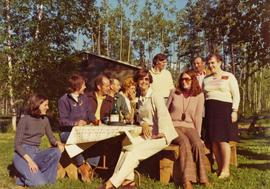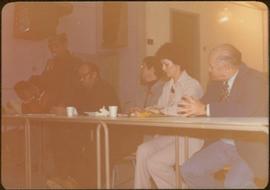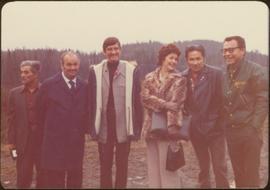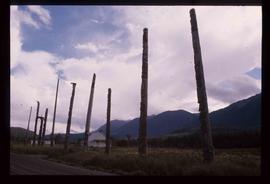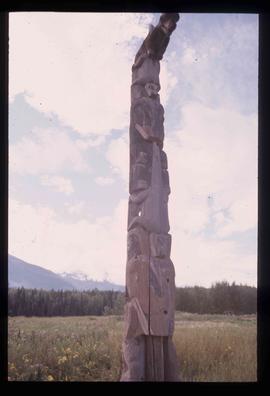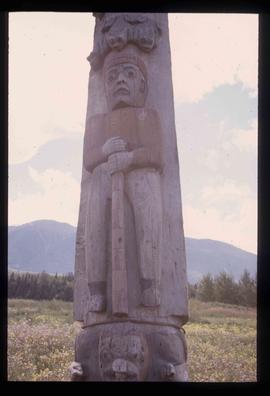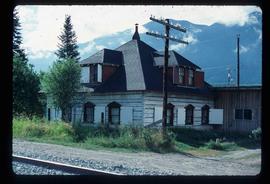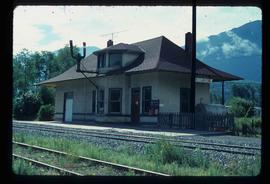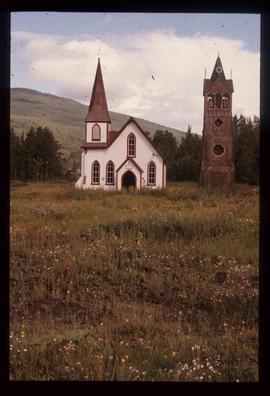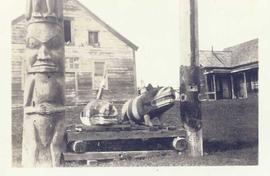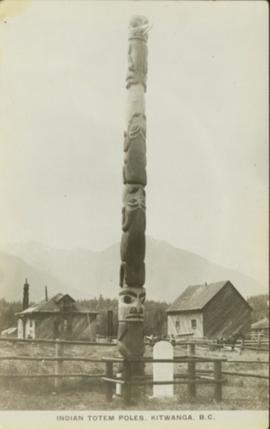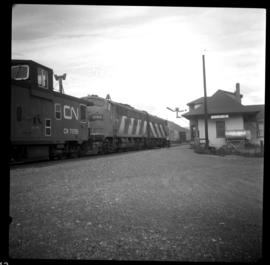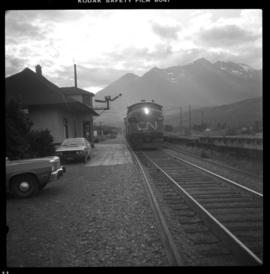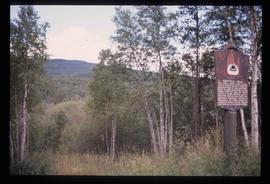Photograph depicts a group of people from the Vancouver-based Terrace Support Group at a picnic table in Kitwanga.
Kitwanga, BC
18 Archival description results for Kitwanga, BC
File contains postcard photographs portraying life in various Northern BC Communities. Images depict buildings and streets, church structures, harbours and docks, and views of the shore from the water to name a few.
Photograph of three unidentified people, Joe Daniels, J.B. [?], Iona Campagnolo, and an unidentified man sitting at a table (see also item 2009.6.1.98).
Handwritten annotations on verso read: “Oct 16/74,” and “Kitwanga, BC, November 11th/74 tour”.
Handwritten annotation on verso reads: “Left to Right: Leonard Bright; Joe Daniels (chief) J.B.; I.C., Richard Morgan; Howard Morgan, Kitwanga, B.C., November 11/74 tour”.
Image depicts a row of totem poles in Kitwanga, B.C.
Image depicts a totem pole in Kitwanga, B.C.
Image depicts a totem pole in Kitwanga, B.C.
File contains slides depicting places in and around the areas of Kitwanga and Meziadin Lake Provincial Park.
Image depicts an old Hudson Bay Company house in Kitwanga, B.C.
Image depicts an old Hudson Bay Company house, with a totem pole in the foreground, in Kitwanga, B.C.
Image depicts the CN Rail station located in Kitwanga, B.C.
Image depicts an Anglican church and a bell tower in Kitwanga.
Photograph depicts four Indigenous totem carvings at Kitwanga with two wooden houses in the background.
Full on photograph of a totem pole in a fenced area. Printed annotation on recto reads: "Indian Totem Poles, Kitwanga, B.C."
Photograph taken at the CNR depot in Kitwanga which was built in 1912. It was still used as a train order control point.
Photograph taken at the CNR depot in Kitwanga. A type "e' station was built by the Grand Trunk Pacific Railway in 1912.
Drawing depcits land owned and leased by CNR along the Skeena river and the area requested by the Kitwanga Band.
Image depicts the Battle Hill National Historic Site in Kitwanga, B.C.. The sign located there says: "The small knoll in the valley was a native fortress. Legends maintain that it was man-made: built to repel marauding coastal tribes. The hill was the scene of local tribal battles, and at one time was crowned with the defenders' buildings. Known as Dhawdezp, the unique mound is a prominent feature in the legends and history of the Indian people."
